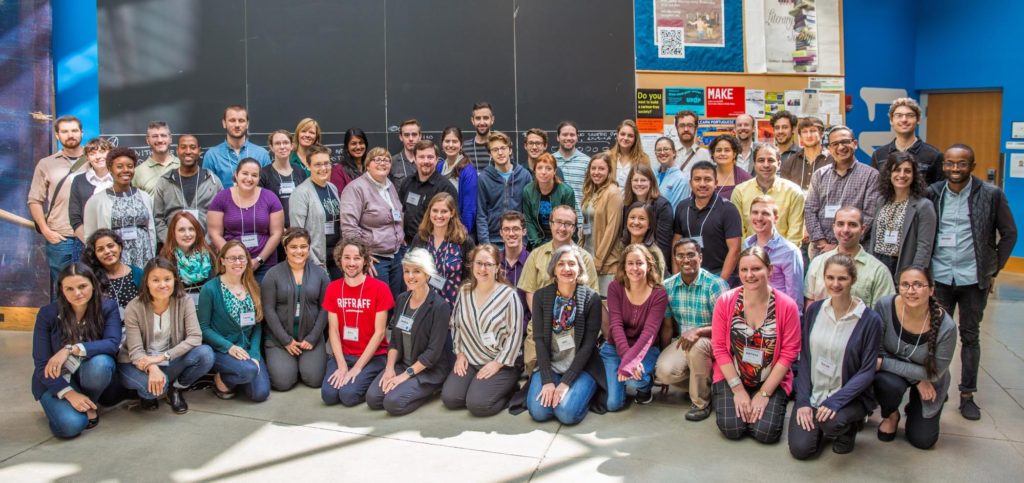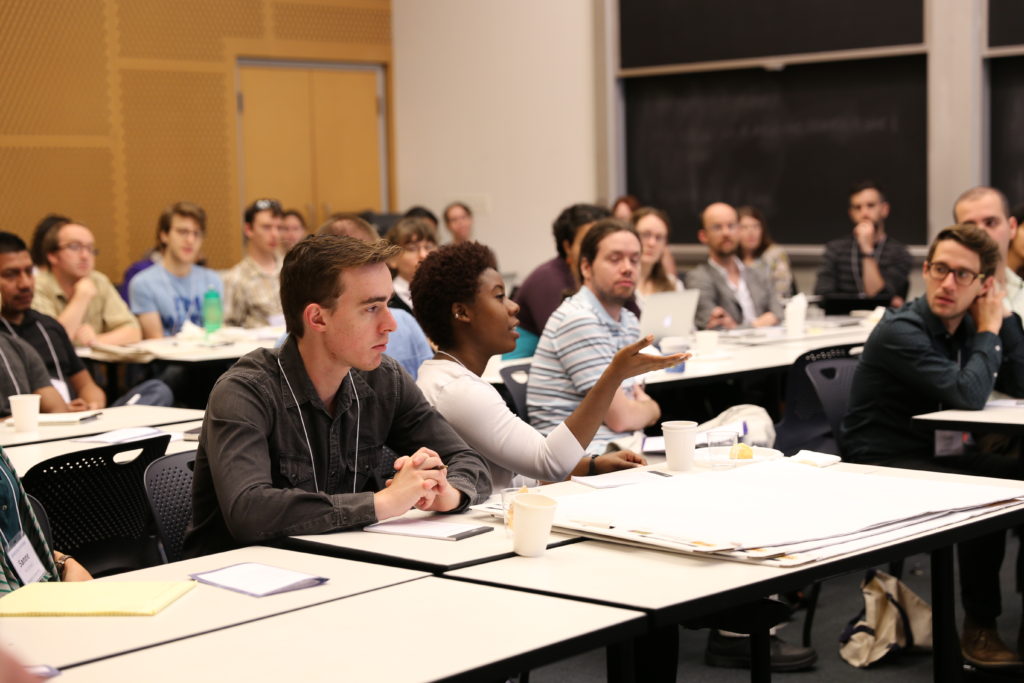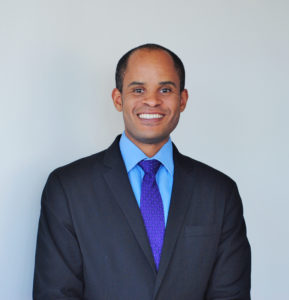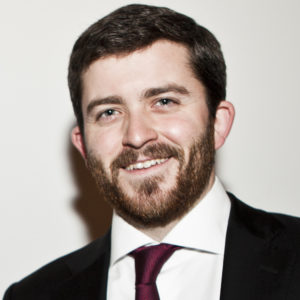Boston 2017
Expanding Leadership roles for Early Career Researchers #FORLeads
Register NOW here!
Get Early Career Researchers a Seat at the Table!
Background and symposium goals
Future of Research, a nationwide grassroots advocacy group comprised of Early Career Researchers (ECRs) including graduate students, postdoctoral scholars, industry scientists and junior faculty is hosting a 1-and-a-half day symposium focused on training ECRs to develop skills to self-advocate for their training and career development needs. The goal of this symposium is to promote the inclusion of early career scientists in leadership positions to ensure their representation during decision-making conversations that affect the future of the scientific enterprise.
Conversations about getting ECR advocates a seat at the table are important for giving the early career population a voice in science, in particular as they are the most diverse population within academia in terms of race, gender, ethnicity, and socioeconomic status. There are greater barriers faced by members of underrepresented groups in the struggle to be heard by those in positions of power. Recognizing this fact, we seek to include a diverse and inclusive representation of race, ethnicity, disability status, gender identity and sexual orientation in our invitation/selection of meeting speakers and participants. The efforts taken to make sure that our organization is diverse and inclusive, and can speak to as much of the community as possible, are central also to our efforts in preparing symposia.
Participants at the 2016 “Advocating for Science” Symposium in Boston. Photo by Alina Chan
Symposium format
This symposium, hosted at Boston University on November 17-18 will bring together speakers from diverse academic and institutional backgrounds to mentor local researchers and to share lessons learned.
Keynote speakers: Nick Shockey, Director of Programs & Engagement at SPARC; and Kenneth Gibbs Jr., Program Director in the Divisions of Training, Workforce Development and Diversity, and Genetics and Developmental Biology at NIGMS.
Panel discussion: The panel discussion features panelists who will speak about their experience in facilitating the creation of leadership roles for ECRs, as well as those who have successfully assumed a leadership position while an Early Career Researcher. These include Tracey DePellegrin, Executive Director of the Genetics Society of America; Moshe Pritsker, CEO, Editor-in-Chief and co-founder of the Journal of Visualized Experiments (JoVE); Keerthi Sheety, Scientist I and Project Manager at Dana-Farber Cancer Institute; Juan Pablo Ruiz, graduate student at the University of Oxford; and Sarah Dykstra, Boston Postdoctoral Association Organizer.
Registration
Register HERE
Registration is $10 and can be reimbursed upon request.
The Boston Conference welcomes all participants including those with disabilities. Please contact us at info@futureofresearch.org to discuss accommodations and accessibility needed to fully participate in this event. Requests should be made as soon as possible, but at least two weeks prior to the event.
Location and Schedule
All events will be held at the Boston University campus.
Friday, November 17, 2017
Boston University Campus, College of Communication Building, Room 101
4:30 PM – 8:00 PM
4:30 PM Registration
5:00 PM Opening of Meeting: Sonia Hall and Gary McDowell
5:15 PM Keynote speech Kenneth Gibbs, Jr.: “From the Lab to National Science Policy: Making Your Mark as an #ECR”
6:00 PM Keynote speech Nick Shockey
6:45 PM Break
7:00 PM Panel Discussion:
Tracey DePellegrin, Moshe Pritsker, Keerthi Shetty, Juan Pablo Ruiz and Sarah Dykstra
8:00 PM Networking Reception (Cornwall’s pub)
Saturday, November 18, 2017
Boston University Campus, College of Communication Building, Rooms 101 and 144
8:30 AM – 2:00 PM
8:30 AM Registration
9:00 AM Welcoming Remarks
9:30 AM Workshop 1: Building a Leadership Framework
10:45 AM Break
11:00 AM Workshop 2: Designing a Messaging Platform
12:15 PM Lunch
12:45 PM Workshop 3: Driving Change with Data
2:00 PM Break
2:15 PM Workshop 4: Creating an Implementation Plan
3:30 PM Closing Remarks
Workshops
The workshops will allow participants to further discuss the topics at hand to both design potential solutions to the problems and to identify actors crucial to resolve these issues.
Workshop 1: Building a Leadership Framework – In this workshop we will build upon existing models from successful programs to clearly define and map out critical features required for integrating and supporting ECRs into leadership positions, including discussing how to ensure that ECRs can make their voices heard in these positions and contribute in meaningfully and significantly to the conversations. (Facilitators: Sonia Hall and Adriana Bankston).
Workshop 2: Designing a Messaging Platform – In this workshop, we aim to create messaging that allows early career scientists, organizational leaders, and other interested groups to effectively advocate for the creation of leadership roles for early career scientists. (Facilitators: Emily Lescak and Sarah Dykstra).
Workshop 3: Driving Change with Data – In this workshop we aim to identify the types of data that needs to be collected to track outcomes and evaluate programmatic features of leadership programs. Workshop goals include: determining minimal as well as ideal definitions of training success, productivity, and other metric. (Facilitators: Gary McDowell and Pauline Charbogne).
Workshop 4: Creating an Implementation Plan – In this workshop, we will put together all of the pieces from the previous 3 workshops to define expectations & next steps to empower attendees to advocate for meaningful change in the creation of leadership roles for ECRs (Facilitators: Erica Walsh Michel and Jessica Polka).
Symposium Outcomes: These discussions will form the basis for a meeting report, presenting potential solutions for increasing ECR representation in leadership roles. This format follows the tradition of our previous meetings: providing early career researchers with actionable solutions to the problems they face, and reporting on those solutions to the wider community.
Workshop participants at the “Advocating for Science” Symposium, Boston 2016. Photo by Alina Chan.
Keynote Speakers
Kenneth Gibbs, Jr. – Keynote Speaker
Kenneth (Kenny) Gibbs, Jr., Ph.D., is a Program Director in the Divisions of Training, Workforce Development and Diversity, and Genetics and Developmental Biology at the National Institute of General Medical Sciences (NIGMS). In this role, Dr. Gibbs leads and administers federal programs that train the next generation of scientists, broaden participation in the research workforce, and promote basic research. Previously, Dr. Gibbs served as a program analyst in the NIGMS Office of Program Planning, Analysis and Evaluation (OPAE) where he led evaluation and innovation efforts of NIGMS TWD programs, and supported trans-NIH strategic and programmatic evaluative efforts.
Prior to joining NIGMS, Dr. Gibbs was a Cancer Prevention Fellow at the National Cancer Institute, and an AAAS Science & Technology Policy Fellow at the National Science Foundation (NSF) in the Directorate for Education and Human Resources (EHR). In these roles, Gibbs developed the “STEM Ph.D. Careers” research project to understand the factors influencing career development of recent Ph.D. graduates.
Dr. Gibbs completed his Ph.D. in the Immunology program at Stanford University, and received his B.S. in biochemistry & molecular biology (summa cum laude) from the University of Maryland, Baltimore County where he was a Meyerhoff, MARC, and HHMI scholar. Dr. Gibbs served on the Board of Directors for the National Postdoctoral Association, and written about scientific training and diversity issues for Science Careers, and Scientific American.
Nick Shockey – Keynote Speaker
Nick Shockey is the Director of Programs & Engagement at SPARC where he focuses on fostering and supporting communities that advance Open Access, Open Education, and Open Data. In this capacity, Nick founded the Right to Research Coalition, an international alliance of student organizations—collectively representing millions of students in over 100 countries around the world—that promote policies and practices that make open the default for research. In 2014, Nick launched OpenCon, a conference and community that works to identify, cultivate, and empower leaders within the next generation to advance openness in research and education. To date, OpenCon has reached more than 4,000 in-person participants across 80 countries and catalyzed dozens of new projects, organizations, and campaigns. Nick is also particularly passionate about working with libraries to support their institutions in adopting open practices for research and education.











